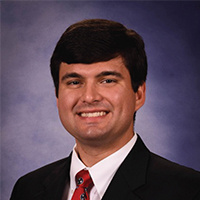Luttrell White Collar Crime Lawyer, Tennessee
Sponsored Law Firm
-
 x
x

Click For More Info:
-
The Law Offices of Richard L. Cooper, P.A.
848 Brickell Avenue Suite 800 Miami, FL 33131» view mapDWI/DUI, Drug Trafficking, Felony Nationally Ranked Top 40 Under 40
With Richard L. Cooper you can expect a trusted confidant who will work diligently to fully understand your case and determine a road map to help you regain control of your life.
800-756-2781
Not enough matches for Luttrell White Collar Crime lawyer.
Below are all Luttrell Criminal lawyers.
C.J. Lewis
✓ VERIFIEDMr. Lewis graduated from the University of Tennessee College of Law in May of 2015. While there he conducted legal research for the Knox County Public... (more)
Jeffrey Coller
Knoxville Tennessee Criminal Defense Lawyer Jeffrey Coller handles both state and federal charges including misdemeanors and felonies. He focuses on c... (more)
Douglas P. Nanney
✓ VERIFIEDDouglas Nanney is a practicing lawyer in the state of Tennessee. Attorney Nanney received his J.D. from the University of Mississippi in 1991.
Matthew Janson McClanahan
✓ VERIFIEDMatthew is a proud native-born Tennessean and the third generation to live on my family’s farm. His roots trace back to his ancestor and the first g... (more)
L. Eric Ebbert
✓ VERIFIEDL. ERIC EBBERT is the owner of the Ebbert Law Firm, which he created in 2020. He is licensed in both Tennessee and Florida. He practices in the areas ... (more)
FREE CONSULTATION
CONTACT
 Richard L. Cooper Miami, FL
Richard L. Cooper Miami, FL AboutMiami Attorney at Law
AboutMiami Attorney at Law ServicesCriminal Defense
ServicesCriminal Defense





